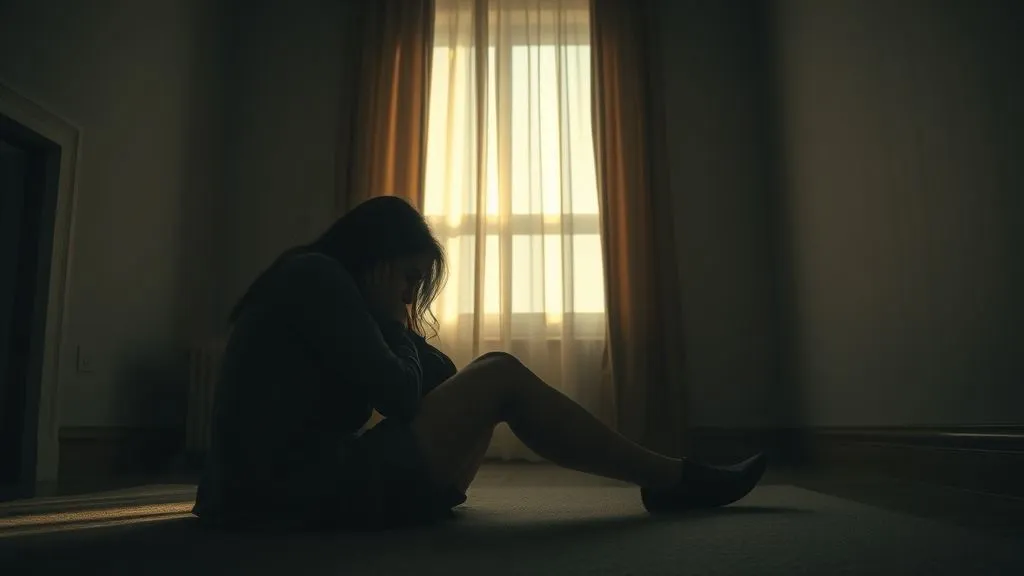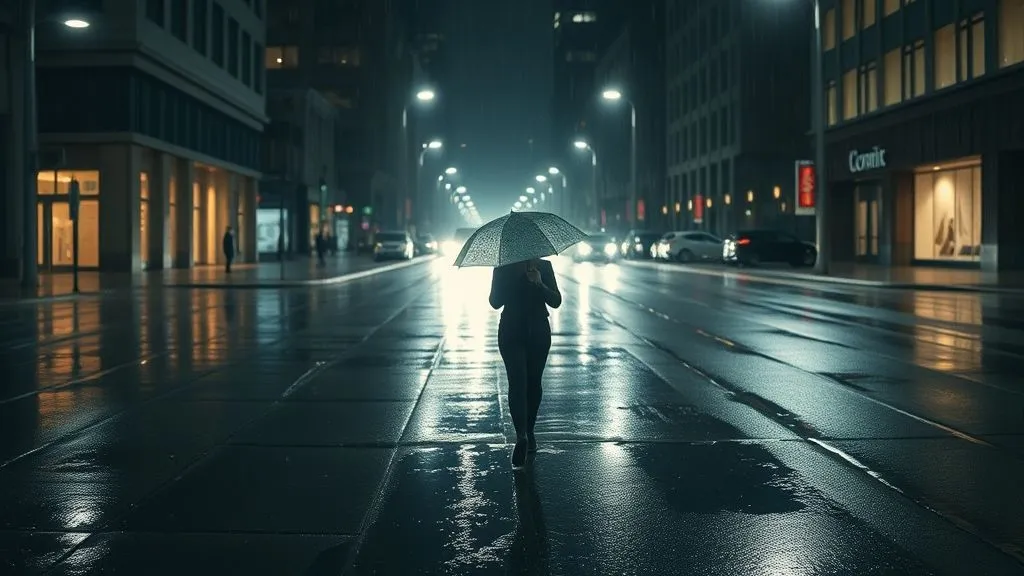
You don’t just “feel sad” when your heart breaks. You feel shattered. Like someone reached inside your chest, took something that once pulsed with warmth—and left behind a hollow echo. A broken heart isn’t a metaphor. It’s real. It throbs through your ribcage, it pulls you down like a physical weight, and it makes the world blur into something unrecognizable. This is what a broken heart really feels like. And this is where healing begins.
The Body Doesn’t Know It’s “Just Emotional”
Your body reacts to heartbreak the same way it would to physical injury or danger. It floods you with stress hormones. Your broken heart races. Your appetite vanishes. Sleep escapes. Some people lose weight. Others gain. Some cry constantly, while others go completely numb.
- The nervous system misfires: Fight-or-flight mode stays on even when there’s no visible threat.
- Your immune system drops: You may get sick more easily during heartbreak.
Because to your brain, heartbreak is survival. And it doesn’t know how to turn it off.
You Mourn a Future That Will Never Happen
What hurts most isn’t just the person—it’s the imagined life you were building with them. The future holidays. The quiet breakfasts. The “someday” dreams. All of that collapses overnight.
- You don’t just grieve the past. You grieve the could-have-beens.
- You relive moments constantly, not because you want to, but because your brain is trying to “make sense” of something senseless.
- Even silence feels violent, because it reminds you they’re no longer in your world.
And this kind of grief doesn’t come with rituals like a funeral. People expect you to bounce back—when inside, you’re still bleeding invisible wounds.

Time Feels Distorted when you have a broken heart
Days blend together. Mornings feel heavy. Nights feel endless.
Everything is either too loud or too quiet. The songs you used to love hurt now. The places you used to go together feel like haunted ruins. Even time itself doesn’t move normally anymore.
- Your brain struggles to focus: You reread the same sentence five times. Forget what day it is. Can’t finish tasks.
- Sleep becomes a warzone: Either you can’t fall asleep, or you wake up in panic at 3AM.
- You question reality: Was it ever real? Did they ever love me? Am I going crazy?
Heartbreak creates a kind of emotional vertigo. You’re still here—but you’re not the same.
You Start Blaming Yourself for Everything
When they’re gone, your mind searches for reasons. And the easiest target is you.
“Maybe I was too much.”
“Maybe I wasn’t enough.”
“If I had done this one thing differently…”
This spiral of self-blame isn’t truth—it’s trauma. You’re trying to create order in the chaos. You’re trying to find logic in a loss that feels illogical. But sometimes, people leave not because you were wrong—but because they weren’t ready for something right. Or they never deserved your depth in the first place. And yes, it hurts, but that’s the weight of a Broken Heart.
Do you want me to add the keyword more than once (for SEO density), or keep it just once for a natural touch?
You Become a Stranger to Yourself
Heartbreak doesn’t just take the other person away. It takes away the version of you that existed with them.
You doubt your own worth.
You don’t recognize your face in the mirror.
Even your laugh feels like it belongs to someone else.
And underneath it all is the deepest wound: you loved with everything you had, and it still wasn’t enough to make them stay. That’s the kind of pain that changes a person—a Broken Heart that reshapes who you are.
And Yet… This Pain Is Sacred
It won’t always feel like this. But for now—it’s okay to let it hurt. This pain means your love was real. That you cared deeply. That you were brave enough to open your heart.
- You’re not weak for breaking. You’re human.
- You’re not broken beyond repair. You’re just cracked open wide enough for light to enter again.
- You don’t need to rush healing. You only need to take the next small step.
And that next step begins here: by honoring the heartbreak—not hiding from it.
The Hidden Stages of a Broken Heart (And Why You Feel Stuck)
Everyone tells you to “move on.” But no one tells you how. Because heartbreak doesn’t follow a straight line. It’s not just denial, anger, bargaining, depression, acceptance. It’s a storm that loops, doubles back, and sometimes stays stuck in one place for far too long. Let’s unravel the real, hidden stages of a broken heart—and why they feel impossible to escape.
Stage 1: Shock and Emotional Paralysis
You thought the worst would be the moment they left. But it wasn’t. It was the moment after, when the silence settled—and you realized they weren’t coming back.
You feel frozen: Can’t eat, sleep, or even cry properly.
You keep checking your phone, waiting for a message that doesn’t come.
Your body feels numb, like it’s trying to protect you from feeling too much, too fast.
This is emotional shock. Your nervous system is overwhelmed, and all you can do is survive hour by hour. And that’s okay. Survival is enough right now—even with a Broken Heart.

Stage 2: Obsession and Replaying
You begin dissecting every conversation. Every gesture. Every fight. Like you’re a detective trying to solve your own Broken Heart.
You search for clues: Was it that one argument? Did they stop loving you earlier than they said?
You stalk their social media: Even when it hurts. Especially when it hurts.
You imagine alternate endings, where they apologize, come back, change.
This isn’t a weakness. This is your brain’s desperate attempt to rewrite the story, so it doesn’t end in abandonment. But this is also the stage where you stay stuck the longest—because obsession feels like connection, even when it’s not..
Stage 3: Numbness and Identity Loss
There comes a day when even the tears dry up. Not because it’s over. But because your system has burned out from grieving.
You feel… nothing. No rage. No sadness. Just an empty, gray flatness.
Your identity feels erased: Who are you without this relationship? Without this love?
Even joy feels suspicious, like something you’re not allowed to feel yet.
This stage is dangerous, because it convinces you that healing will never come. But this quiet ache is actually your body rebuilding its strength in the background. You’re not failing—you’re resting, even with a Broken Heart.
Stage 4: Grief Comes in Waves
Just when you think you’re finally okay, the grief crashes back—unexpected and brutal.
A smell. A song. A stranger who looks like them.
One normal day turns into sobbing in your car.
You feel ashamed for “regressing.”
But this is healing. Healing isn’t a ladder. It’s a spiral. Each wave hits a little softer. Each return hurts a little less. This is how your heart learns to feel again, even after a Broken Heart.

Stage 5: Quiet Rage and Rebellion
One day, something shifts. You stop missing them, and start missing yourself.
You feel angry—not just at them, but at yourself: For tolerating less. For dimming your light. For calling crumbs a feast.
You want to reclaim your body: Cut your hair. Start working out. Change your space.
You stop idealizing the past, and start questioning the truth behind the love.
This is your rebellion. Your rising. The slow, trembling ignition of self-worth. It doesn’t mean you’re “over it.” But it means the power they held is loosening its grip, and your Broken Heart is beginning to heal.
Why You Might Feel “Stuck” Between Stages
Some days you feel strong. Other days, you collapse. It doesn’t mean you’re broken. It means you’re grieving honestly.
- You may feel loyal to your pain. As if letting go dishonors what you had.
- You may fear healing. Because healing means it’s really over.
- You may be addicted to the drama, even if you know it’s hurting you.
But you don’t have to rush. You don’t have to know the end. You only have to keep showing up for yourself—even in the ugliest, rawest moments.
How to Gently Start Healing (When You’re Still Hurting)
You don’t need closure. You don’t need their apology. You don’t need to be okay first. You just need a little space between the pain and your next breath. This is how you begin again—slowly, softly, and without pretending you’re fine.
Start By Validating Your Pain (Not Minimizing It)
People around you may say things like:
- “It happens to everyone.”
- “You’ll find someone else.”
- “At least you didn’t get married/have kids/etc.”
But their minimization doesn’t soothe. It erases. You have every right to grieve as deeply as you need.
- Your love was real. So your pain is real.
- Your experience is valid. Even if others don’t understand it.
Give your pain a voice. Journal. Scream. Whisper. Let it move through you so it doesn’t stay stuck in you.
Set Boundaries That Protect Your Healing
You’re not weak for blocking them. Or deleting photos. Or muting mutual friends. You’re wise.
- Cut off contact, even if it hurts at first. That’s not punishment. That’s protection.
- Don’t chase “just one more conversation.” It won’t give you the peace you think it will.
- Guard your space. If seeing them move on destroys you, don’t watch it happen.
You’re not trying to erase them. You’re trying to rebuild yourself without them constantly reopening the wound.

Reclaim Rituals That Remind You Who You Are
When you’re heartbroken, even small things feel too heavy. But healing hides inside small rituals. The daily, quiet reclaiming of life.
- Change your sheets. It marks a new chapter.
- Make your morning coffee with extra care. Because nurturing yourself matters now.
- Walk without a destination. Let your body remember freedom.
These aren’t distractions. They’re anchors. They remind your nervous system: you are still alive, still whole, still worthy of comfort.
Speak to Yourself the Way You Would a Wounded Child
You wouldn’t tell a child sobbing from heartbreak to “get over it.” You wouldn’t say, “You’re being dramatic,” or “It wasn’t that serious.” So don’t speak to yourself that way either.
Talk to your inner self like she’s fragile and fierce.
Offer grace instead of shame.
The voice inside your head is the most powerful force in your healing. So soften it. Let it love you, even through a Broken Heart.
Romantic love isn’t the only kind that heals.
- Call a friend and cry. Let them just be there without fixing it.
- Hug your pet. Sit in the quiet warmth of something that loves you back.
- Read something beautiful. Let art remind you that feeling deeply isn’t a curse—it’s your superpower.
The loss of one person doesn’t erase the possibility of love. It just clears space for something more aligned, more mutual, more safe.
Rewrite the Story of What This Pain Meant
You didn’t “fail.” You grew. You didn’t get “rejected.” You got redirected. This wasn’t the end of your worth. It was the beginning of your rebirth.
- From “They left because I wasn’t enough”
- From “I’ll never feel this deeply again”
- To “Now I know how deeply I can love—and next time, I’ll give it to someone who cherishes it.”
This is your story. You get to choose what it means.
You’re Not Behind. You’re Becoming.
Healing doesn’t have a timeline. There’s no medal for getting over it fastest. There’s only this moment—and the quiet courage to keep going. You may not see it now, but:
- One day, you’ll breathe without pain in your chest.
- One day, the memory of them won’t sting.
- One day, you’ll laugh, and realize you didn’t think of them at all.
That day is already growing inside you. And until it comes, let this truth anchor you: Your heart may be broken, but you are not.
Disclaimer: This post is for informational and emotional support purposes only. Every relationship is unique, and this is not professional legal, medical, or mental health advice. Read our full disclaimer.
Affiliate Disclosure: Some links in this post may be affiliate links. If you make a purchase through them, I may earn a small commission at no extra cost to you. Learn more here.
Pingback: Why Does My Heart Physically Hurt After a Breakup? (Science + Soul) - Love and Breakups
Pingback: Is It Normal for an Ex Coming Back? Let's Get Honest About It 2025 - Love and Breakups